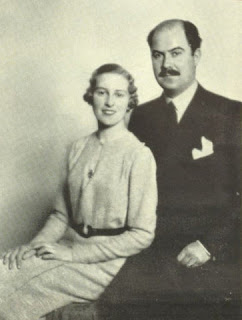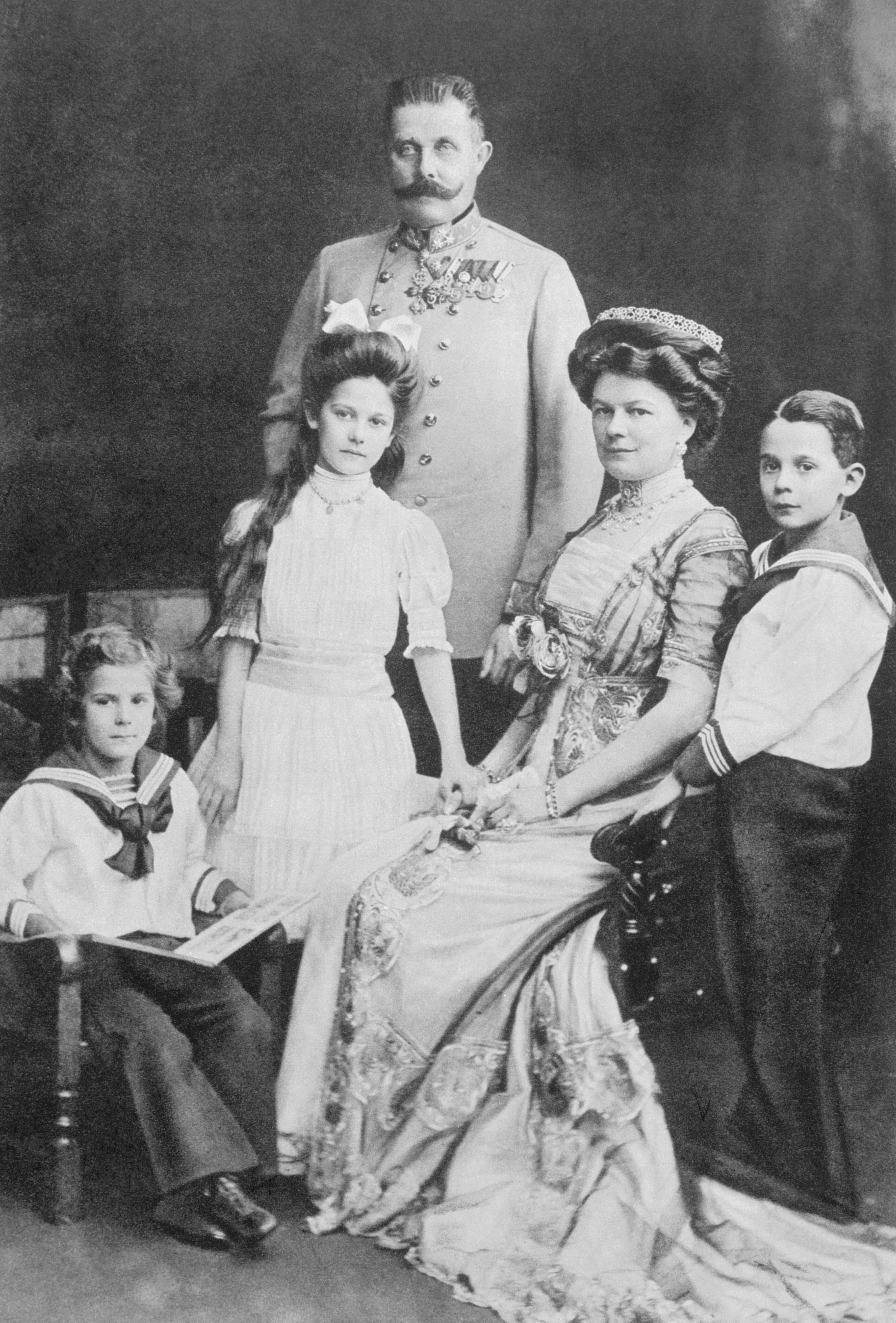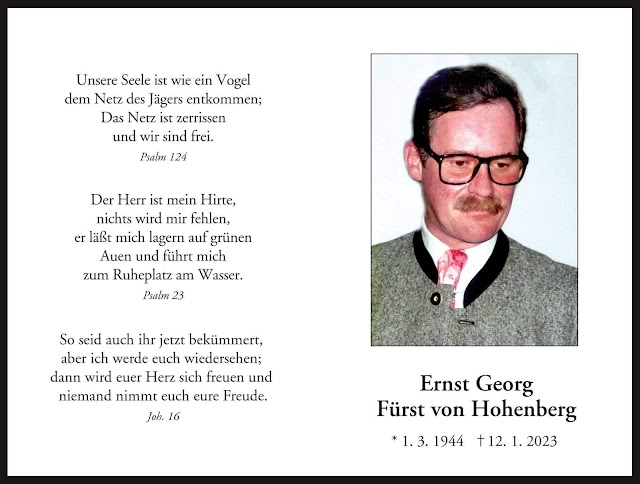It is with a heavy heart that we announce the passing of Fürst Ernst Georg von Hohenberg, the last surviving grandson of Archduke Franz Ferdinand of Austria and Duchess Sophie von Hohenberg. His life was marked by a rich legacy of family history and a deep connection to the royal family of Austria. Born on March 1, 1944, in Vienna, Fürst Ernst was the second son of Fürst Ernst von Hohenberg and Fürstin Marie-Thérèse, and his life was shaped by the significant events that unfolded in the years following his birth.
As the last direct descendant of Archduke Franz Ferdinand, Fürst Ernst carried the weight of history on his shoulders. His life was a testament to the enduring legacy of his ancestors, who played a pivotal role in shaping the course of European history. With his passing, the world loses a piece of its rich cultural heritage, and we pay tribute to his life and legacy. May he rest in peace, and may his memory continue to inspire future generations to cherish the values of family, loyalty, and honor that he embodied throughout his life.
what was the significance of archduke franz ferdinand in european history
Archduke Franz Ferdinand of Austria-Este played a pivotal role in European history as his assassination on June 28, 1914, in Sarajevo triggered a chain of events that led to the outbreak of World War I. As the heir presumptive to the Austro-Hungarian throne, Franz Ferdinand's death at the hands of Gavrilo Princip, a Bosnian Serb nationalist, created a diplomatic crisis that escalated into a global conflict involving major European powers. The assassination marked a turning point in the complex web of alliances and rivalries that had been developing in Europe, ultimately leading to the devastating war that lasted from 1914 to 1918234. Franz Ferdinand's significance extends beyond his role in the immediate events leading to World War I. His life and death also reflect the complex tensions and rivalries within the Austro-Hungarian Empire, particularly between the empire's various ethnic groups and the imperial family. His marriage to Sophie, Countess of Chotek, a lady-in-waiting, was morganatic, meaning that their children were not entitled to inherit the throne, which highlights the tensions between the imperial family and the aristocracy within the empire3. Furthermore, Franz Ferdinand's assassination serves as a symbol of the growing nationalist and irredentist movements in Europe, particularly among the South Slavic populations within the Austro-Hungarian Empire. His death was seen as a catalyst for the unification of these groups under a single state, which was a key goal of the Young Bosnia movement and the Black Hand secret society, both of which were involved in his assassination4. In summary, Archduke Franz Ferdinand's significance in European history lies in his role as a catalyst for the outbreak of World War I, a symbol of the tensions within the Austro-Hungarian Empire, and a reflection of the growing nationalist and irredentist movements in Europe during the early 20th century.what was the relationship between archduke franz ferdinand and duchess sophie von hohenberg
Archduke Franz Ferdinand of Austria and Duchess Sophie von Hohenberg were married in a morganatic marriage, meaning that Sophie was not of royal blood and therefore could not become the Empress of Austria. Despite this, Franz Ferdinand was deeply in love with Sophie and refused to consider marrying anyone else. He had become heir presumptive to the throne after the death of his cousin Crown Prince Rudolf in 1889 and the death of his father Karl Ludwig in 1896. However, the Emperor Franz Joseph informed Franz Ferdinand that he could not marry Sophie because she was not of dynastic rank, which was a requirement for the consort of the Imperial House of Habsburg-Lorraine. This led to a scandal and the couple's exclusion from many royal courts, although they were welcomed by some, such as King George V and Queen Mary of the United Kingdom23.what was the cause of the conflict between archduke franz ferdinand and the emperor over his desire to marry sophie, countess of chotek
The conflict between Archduke Franz Ferdinand and Emperor Franz Joseph over Franz Ferdinand's desire to marry Sophie, Countess of Chotek, arose from the fact that Sophie was not of royal blood and therefore could not become the Empress of Austria. This was a requirement for the consort of the Imperial House of Habsburg-Lorraine, as specified by the Emperor. Franz Ferdinand, who was the heir presumptive to the throne, refused to renounce Sophie and marry someone else, which further complicated the situation3.Fürst Ernst Georg von Hohenberg passed away on 12 January 2023. He was seventy-eight years-old. Ernst was the last surviving grandson of Archduke Franz Ferdinand of Austria and Duchess Sophie von Hohenberg. Now, the only surviving grandchild of Archduke Franz Ferdinand and Duchess Sophie is Fürst Ernst's first cousin, Baroness Sophie von Gudenus (b.1929; née Countess von Nostitz-Rieneck)
 |
| Fürst Ernst and Fürstin Marie-Thérèse. |
Born on 1 March 1944 at Vienna, Fürst Ernst Georg Elemer Albert Josef Antonius Peregrinus Rupertus Maria von Hohenberg was the second son and child of Fürst Ernst von Hohenberg (1904-1954) and Fürstin Marie-Thérèse (1910-1985; née Wood). Ernst joined an older brother, Fürst Franz Ferdinand (1937-1978; married Heide Zechling).
 |
| Franz Ferdinand and Sophie with their three children: Sophie, Maximilian, and Ernst. |
The paternal grandparents of Ernst were Archduke Franz Ferdinand of Austria (1863-1914) and Duchess Sophie von Hohenberg (1868-1914; née Countess Chotek von Chotkow und Wognin). As is well known, the assassination of Franz Ferdinand, then heir to the Austro-Hungarian Empire, and Sophie on 28 June 1914 in Sarajevo was the catalyst that led to World War I. The maternal grandparents of Ernst were Captain George Jervis Wood (1887-1958) and Baroness Rosa Lónyay de Nagy-Lónya et Vásáros-Namény (1888-1971).
On 31 August 1973 at Radmer, Fürst Ernst von Hohenberg married Patricia Annette Caesar (b.1950), the daughter of Arthur M. Caesar and Selma Anne Maguire. Ernst and Patricia celebrated their religious marriage on 2 September 1973. The next year, the couple welcome the birth of their only child, Fürstin Eva Anne Marie von Hohenberg, on 1 December 1974 at Graz. Fürst Ernst and Fürstin Patricia divorced in 1999. Their daughter Furstin Eva married Alessandro Geromella in 2005; the pair divorced in 2008. Eva is now happily engaged to Peter Eduard Meier. In 2007, Fürst Ernst remarried to Margareta Anna Ndisi (b.1959).
Since 1976 until his passing, Fürst Ernst resided in the hunting castle at Radmer in Styria, Austria.
On 28 January 2023, a Requiem Mass for Fürst Ernst von Hohenberg will be held at the Pfarrkirche Artstetten. His burial will be in the vault of Schloss Artstetten on 28 January 2023.
As we conclude our tribute to Fürst Ernst von Hohenberg, we are reminded of the profound impact his life had on the world. His legacy is a testament to the enduring power of family and the importance of preserving our cultural heritage. Through his life and the lives of his ancestors, we are reminded of the significant events that have shaped our world and the people who have played a crucial role in shaping those events. As we reflect on the life of Fürst Ernst von Hohenberg, we are also reminded of the importance of honoring those who have come before us and the role they play in shaping our understanding of the world.
As we move forward, we are left with a sense of gratitude for the life and legacy of Fürst Ernst von Hohenberg. His story serves as a reminder of the power of family and the importance of preserving our cultural heritage. We are grateful for the opportunity to learn from his life and to be inspired by his courage and resilience. As we continue to navigate the complexities of our world, we are reminded of the importance of honoring those who have come before us and the role they play in shaping our understanding of the world. May the legacy of Fürst Ernst von Hohenberg continue to inspire future generations to cherish the values of family, loyalty, and honor that he embodied throughout his life.








No comments:
Post a Comment